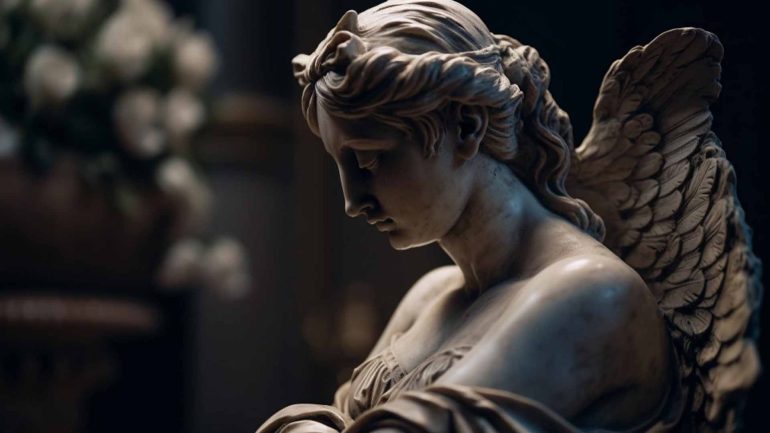The foremost prose satirist, Jonathan Swift represents his enlightening travel narrative “Gulliver’s Travels” to showcase the masterwork of irony. Swift has come across the protagonist called “Lemuel Gulliver” who is a well-educated surgeon, travels on the shore while reaching different lands that only exist in Swift’s imagination. In every part of his journeys, Gulliver finds a new side of humankind and gain knowledge by associating with all of those communities accordingly.
As it happened in the first and second journeys, Gulliver tended to find a new side of human kind through his third journey which happened to Laputa, Balnibarbi, Glubbrubdrib, Luggnagg and Japan. Likewise, Gulliver sets “adrift, in a small canoe, with paddles and sail” to an unknown territory due to the capture of “Japanese” pirates. Anyhow, he meets “an island in the air” which is “rocky” as well. Gulliver noticed that there were people in that floating island by wearing the clothes with the “figures of suns, moons, and stars, interwoven with fiddles, flutes, harps, trumpets” as to value their interest towards astronomy and music. Gulliver also noticed that there was another part of people in the island called “flappers” who went with the king to provoke his “cognition.” Then only Gulliver realized how absent minded they were. Also, when the time Gulliver met Laputian king, he was trying to solve “mathematical instruments of all kinds.” With that said, Gulliver got the idea of their control system which lack of control and due to stupidity and he tended to realize when it comes to practical matters, they had the inability to get used to it. Even though their speech contained of “Rhombs, parallelograms, circles, ellipses and other geometrical terms”, their houses were built “without one right angle” as they bear to practical geometry.” Gulliver found this community as chaos and even he did not want to get bothered by much about mathematics or music. Therefore, he conveyed himself to Balnibarbi.
Then, Gulliver finds that the inhabitants of Balnibarbi enagaged in occult science. They were pursuing some absurd projects in the “grand academy” instead of useful arts. For instance, Gulliver noticed they were “extracting sunbeams out of cucumbers” which they had been doing it for over “eight years.” Gulliver saw this as an absurd experiment. Therefore, he asked the reason from the one who was doing that and his answer was that he did not “doubt” to work over “eight years in the same project” because he “should be able to supply governor’s gardens with sunshine’ by doing it. Again, Gulliver saw someone who was working to “calcine ice into gunpowder” which was also absurd for Gulliver. Likewise, Gulliver once said that he “was not skillful enough to comprehend” what these Balnibarbians did. Their human nature had been neglected their own development and they seems to be disregard with indifference, the inconveniences and consequential discomforts that sprint from their fanatical theorizing. Then, Gulliver takes a boat and journeys to a “little” island which is full of sorcery, called Glubbdubdbrib. There, he found “magicians” and their governor had the skills of “necromancy” where he had the “power of calling whom he pleaseth from the death and commanding their service for twenty four hours, but no longer.” Anyhow, Gulliver’s curiosity got a chance to “call up whatever persons” he “would choose to name” with the help of the governor. Therefore, he made a humble request to see “Alexander the Great at the head of army just after the battle of Arbela.” Then, he saw “Hannibal passing through Alps.” After that, He talked with some greater characters in the history such as “Cesar, Socrates, Epaminondas, Sir Thomas More” and “Aristotle.” He said that he was “chiefly disgusted with modern history” as he got to know the reality happened in past by talking to the great ancients by himself. Therefore, by the help of the people of Glubbdubdbrib. Afterwards, Gulliver discussed with the Struldbrugs who were “immortal” people where he learned about Luggnagg. Gulliver believed that Struldbrugs were the cleverest and luckiest of creatures. The fact that the Struldbrugs, despite their immortality, age, disproved his illusions. Gulliver encountered the universal human fear of death and longing for immortality in his contact with these sadly ancient people. Gulliver’s emerging idea that human nature must be improved via the cultivation of reason is influenced by his visit to the Struldbrugs.
During his fourth voyage, he visits Houyhnhnms where he meets “an abominable animal” with “a perfect human figure” together called, “Yahoo.” Their “breasts” were covered with “thick hair” and they climbed up “nimbly” as a “squirrel.” Conversely, Yahoos were “cunning, malicious, treacherous and revengeful.” These creatures had a regulated law system and this is why they were called as rational horses. However, Gulliver had a lot of respect for the Houyhnhnms and has absorbed their viewpoint about the Yahoos as an inferior form of life. In here, Gulliver comprehend to the fact that all of the physical qualities of this humanoid beast who exhibited all of humanity’s worst flaws. By being with these creatures, Gulliver develops a dislike for human beings because those horses were “rational.” He says he wants to make the society of “English Yahoo by any means not insupportable” and therefore, he “entreat those who have any tincture of Yahoo.” Finally, Gulliver becomes a “perfect yahoo” because he “had more experience” by being with them and he could “thoroughly understand the human nature” of the English society as well.
In sum, by observing all of these evidence, one can distinguish to the fact that Gulliver’s travels bring forth while discovering the supreme expedition of human nature.



